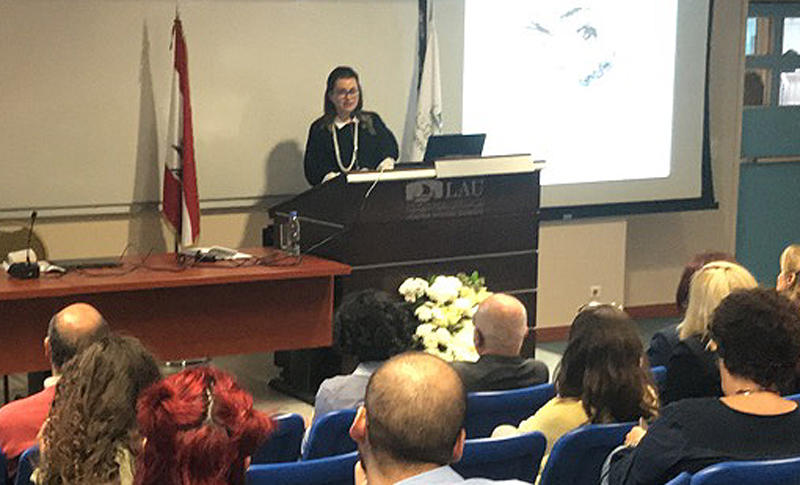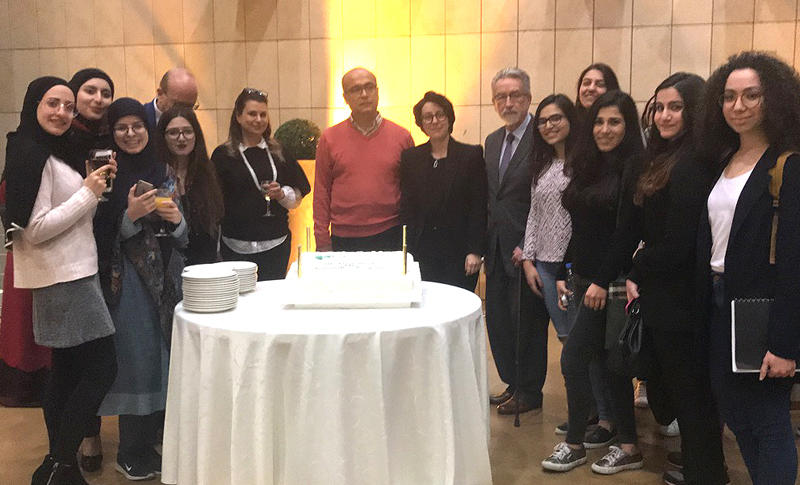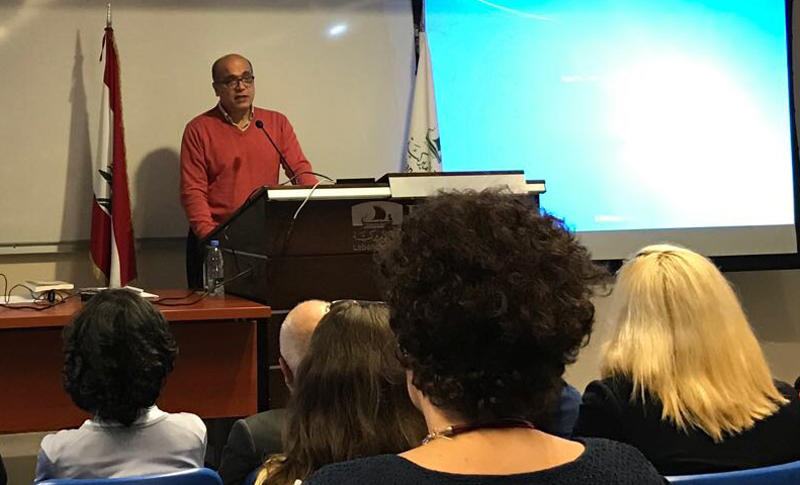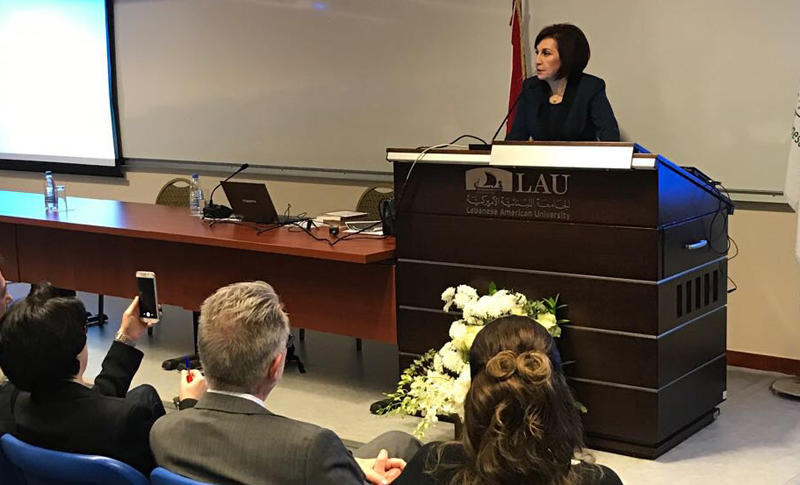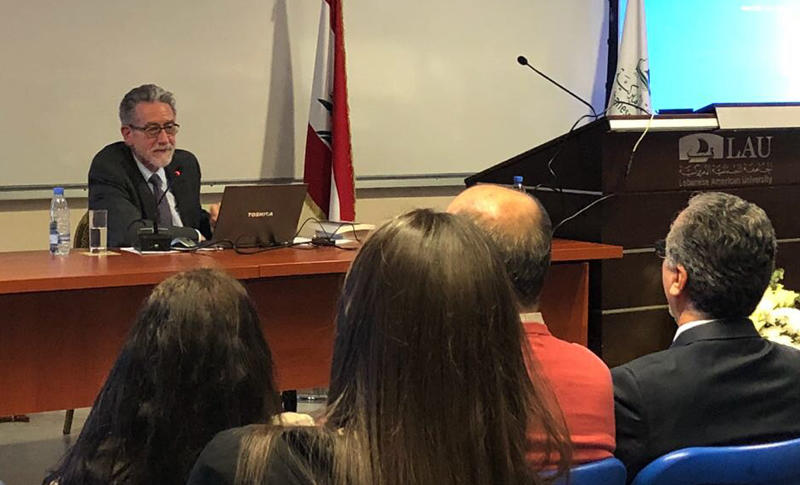LAU’s Translation Program Celebrates Five Years with Symposium
Speakers and attendees focus on how translation promotes understanding and acceptance.
Five years ago, LAU’s Department of Humanities launched its BA in Translation Program, which prepares graduates to enter the field with the knowledge, skills and ethics needed to increase communication and bring communities together.
This week, members of the program gathered to celebrate the anniversary in a symposium that addressed one of the most challenging topics in the discipline, translation and politics, in the presence of professional translators, faculty, and students from LAU, the American University of Science and Technology, the Lebanese University, and Saint Joseph University. The event was organized in collaboration with the Québec Ministry of International Relations.
“Translation raises students’ awareness of the beauty of languages, introduces them to new information in various disciplines, and broadens their horizons by exposing them to new cultures and traditions, thus promoting understanding and acceptance of the other,” said Associate Professor and Coordinator of the Translation Program Nuwar Diab.
In his welcoming word, Paul Tabar, chair of the Department of Humanities, praised the Translation Program’s achievements over the years, which included introducing French and collaborating with universities abroad, such as the University of Manchester in the UK and Université Grenoble-Alpes in France. He also highlighted the program’s emphasis on hands-on experience through internships, and students’ engagement in community service.
“Translation is not simply introducing people and cultures to each other,” he said, “but more importantly, recreating the content of another culture in terms of our indigenous culture. I think this is the biggest challenge that translators face.”
Indeed, translators’ work is not a simple matter of converting text into another language. James Archibald of McGill University in Canada discussed the reflective process of translating political texts, which must start with a pre-translation stage aimed at understanding the universal characteristics of a given political text. Since translation is both a product and a process, translators must understand how knowledge is constructed in both the source and target language and culture. “One cannot translate a political text when it’s pulled out of its context,” he said. “In reality, the translator is involved in the creation of new shared spaces, whether they’re virtual or real, and in the transmission of values.”
Touching on a similar topic, Samia Bazzi of the Center for Languages and Translation at the Lebanese University addressed the different approaches a translator can apply to a text, and how these are affected by power relations and dominant ideologies. “Political translation can give meaning to conflicts, whether by reproducing the dominant political beliefs of a particular media society, or by resisting counter-ideologies that come from foreign sources of information,” she said. She also argued that a translator “brings his or her own cultural and ideological preferences to the task of rendering a source text in the target language.”
A Q&A session at the end of the symposium brought forth a debate on the ethical aspects of translation. This was particularly interesting for senior translation major Fatima Akhdar. “What I found most inspiring about the symposium was that it made us think about what kind of translators we wanted to be in the future,” she said.
At the end of the symposium, attendees cut a cake in celebration of the program’s fifth anniversary. “Organizing such events, especially ones that revolve around translation and politics, is especially important given the fact that our region is very politically involved,” said second-year translation student Dima Fakhreddine. “This affects the language that we use and the way we translate.”
